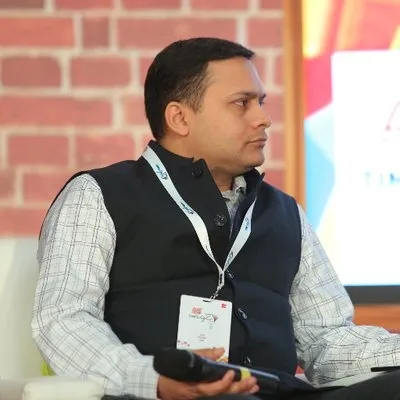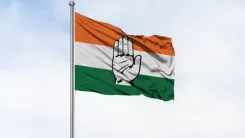Why is BJP’s Amit Malviya Criticizing Congress Over Economic Growth?

Synopsis
Key Takeaways
- Amit Malviya criticizes Congress's skepticism about economic growth.
- Data shows impressive GST collections and forex reserves.
- Congress's past governance is highlighted as a contrast to current achievements.
- Debate centers around NITI Aayog's statements on the economy's size.
- Focus on stable and sustainable economic growth is emphasized.
New Delhi, May 30 (NationPress) BJP leader Amit Malviya has launched a scathing attack on the Congress party for questioning the economic progress achieved under Prime Minister Narendra Modi and for disregarding evidence from international agencies that highlight the ‘legacy of ruin’ from the UPA era.
Malviya’s sharp remarks, posted on the social media platform X, came after Congress leader Jairam Ramesh raised concerns about the ‘inconsistent’ statements from NITI Aayog officials regarding the economy's size and the supposedly 'lackluster' consumption and investment growth.
“It’s both predictable and exhausting to see Jairam Ramesh and his associates grasping at straws in a misguided attempt to undermine India’s clear economic revival,” Malviya stated.
Taking aim at the Congress General Secretary in charge of Communications, he asserted, “The Congress party's latest grievances about discussions at NITI Aayog and their alleged ‘fixation’ on economic size reflect the same intellectual dishonesty and selective memory that characterized their disastrous ten years in power.”
Malviya derided Ramesh, saying, “Cease the nitpicking. The data is unequivocal.”
Earlier, Ramesh had highlighted the conflicting statements from NITI Aayog officials regarding the economy's size, noting on X, “Initially, the NITI Aayog CEO claimed that India’s economy had surpassed Japan's ‘just as he was speaking.’ Then, a member of NITI Aayog contradicted the CEO and offered a more accurate assessment.”
“Following that, the Vice Chairman of NITI Aayog expressed a completely different viewpoint, stating that his colleagues were applying the wrong standard for comparison, suggesting that India’s economy is actually half the size of the USA. This obsession with economic size doesn't yield benefits; it grabs headlines while consumption remains lackluster and investment momentum fails to build,” Ramesh wrote on social media.
Criticizing the unnecessary debate surrounding the size of India's flourishing economy, Malviya remarked, “Let’s discuss fixation. The real fixation is the Congress party’s obsession with manipulating data and promoting narratives that conveniently overlook the economic disaster they oversaw.”
He reminded Ramesh of the ‘Fragile Five’ label that the economy fell into during the UPA regime and their selective use of statements to challenge the NDA government.
“They cherry-pick comments and feign concern over methodologies when it benefits them, yet conveniently disregard ample evidence from the World Bank, IMF, RBI, and numerous other agencies documenting the UPA era’s legacy of ruin: crippling policy paralysis, rampant corruption scandals that eroded investor confidence, and the infamous ‘Fragile Five’ label imposed on India due to their gross mismanagement,” Malviya wrote.
To illustrate the NDA government’s impressive performance, the BJP’s National Information and Technology Department head shared data reflecting the economy’s resilience, including record GST collections of ₹2.37 lakh crore (up 12.6 percent YoY), foreign exchange reserves exceeding $600 billion, controlled inflation, record exports, and thriving financial markets.
“Jairam Ramesh complains about a ‘fixation on size’? The real fixation lies in Congress’ refusal to acknowledge the facts. They prefer selective memory over facing the truth, which is that their rule was marked by high inflation, low confidence, and systemic decay,” Malviya asserted.
“Today’s focus is on stable, sustainable growth while navigating global challenges competently, something the UPA utterly failed to achieve, even in more tranquil times,” he concluded.







